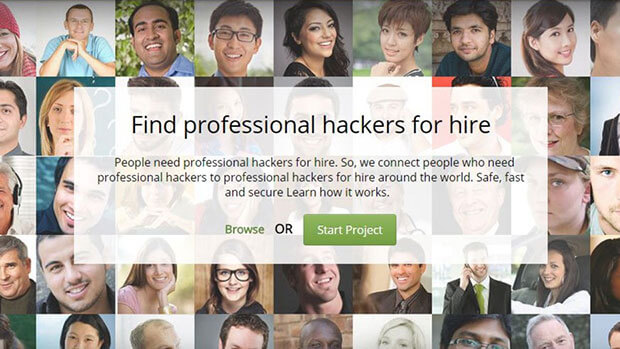A new website has been launched that mirrors oDesk.com, Freelancer.com, Elance.com and similar freelancing sites that connects consumers with service providers. This time round, the service is hacking.
Registered in New Zealand, the site connects customers and professional hackers for hire. Since launching in November, hundreds of posts from users seeking hackers have been added requesting everything from accounts being hacked to grades being tweaked. There are almost 1000 hacker profiles on the site offering services. While hiring hackers online isn’t new; having such ease of access locally is.
The site’s terms and conditions forbid “use the Service for any illegal purposes,” and their FAQ encourages visitors to report any illegal jobs so they can be removed. Even so, the general public now have much easier access to a large number of hackers that they can potentially engage in offline discussions to discuss other more dubious hacking projects.
We saw more targeted attacks on organisations reported in 2014 than ever before. Data breaches are creating headlines with greater regularity, and targeted attacks through social engineering, brute force attacks, phishing and malware are key threats in 2015. This site, no matter how much they try to prohibit it; has the potential to result in even more.
According to the New York Times, the founders of the website are too afraid to go public. The article stated they had received legal counsel about how to structure the website to avoid liability for any wrongdoing by people either seeking to hire a hacker or by hackers agreeing to do a job.
It is important to remember that Australian hacking laws carry penalties of up to ten years imprisonment.
Hacking refers to the unlawful or unauthorised access to, or modification of, restricted data. High tech crime offences are defined in Commonwealth legislation within Part 10.7 – Computer Offences of the Criminal Code Act 1995 and include:
- Computer intrusions (for example, malicious hacking)
- Unauthorised modification of data, including destruction of data
- Denial-of-service (DoS) attacks
- Distributed denial of service (DDoS) attacks using botnets
- The creation and distribution of malicious software (for example, viruses, worms, trojans).
More information
To discuss your security status and how to protect your business, contact your account team.

